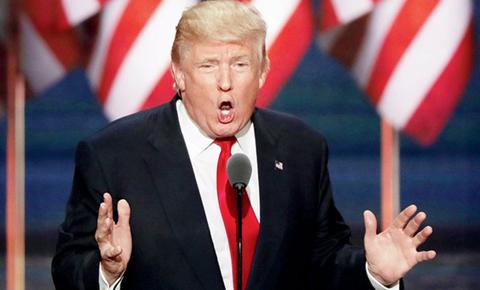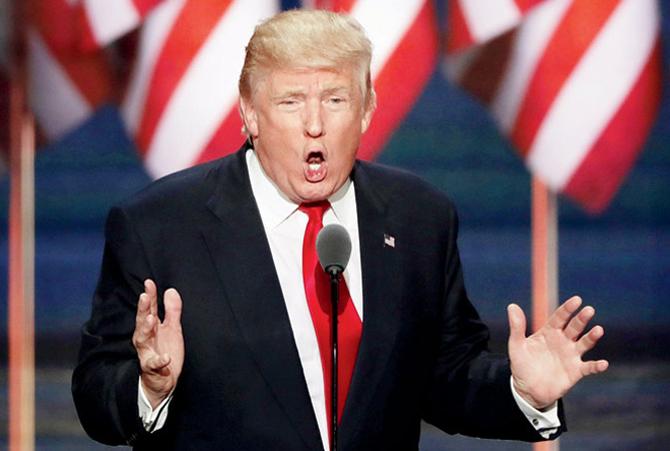President Donald Trump today met Nikki Haley in the White House soon after she was sworn in as America's next Ambassador to the UN, scripting history by becoming the first Indian-American to serve on a Cabinet rank position in any US presidential administration


Donald Trump
ADVERTISEMENT
Washington: President Donald Trump today met Nikki Haley in the White House soon after she was sworn in as America's next Ambassador to the UN, scripting history by becoming the first Indian-American to serve on a Cabinet rank position in any US presidential administration.
"This morning, he had the honour to greet now ambassador to the UN Nikki Haley in his office after the Vice President swore her in in his ceremonial office across the street," the new White House Press Secretary, Sean Spicer told reporters at his daily news conference.
"As one of the most respected governors in the country, Ambassador Haley has a proven track record of bringing people together, regardless of their background or differences, to great opportunities for bettering her state and now our nation," Spicer said.
"The President is pleased that Ambassador Haley, to the best of my knowledge at least, is our nation's first Indian-American Cabinet-level officer. That's a big deal for Indian-Americans throughout this country," Spicer said.
"And now, she is able to get to work representing our United States nation as its top diplomat at the UN," Spicer said. The 45-year-old former South Carolina Governor Haley was sworn in by Vice President Mike Pence.
Haley, a rising Republican star, was approved overwhelmingly by the Senate Foreign Relations Committee yesterday with wide bipartisan support, 96-4. She has replaced Samantha Power. She is the first woman to be confirmed to Trump's Cabinet.
Once a fierce critic of Trump, Haley in November was selected as the first woman and first minority to serve in the Trump Administration. The daughter of Indian immigrants from Punjab, Haley had said she wouldn't support one of Trump's major campaign proposals ' to create a registry of Muslims in the US and a ban on Muslim immigration and travel but suggested the administration's views had changed on the issue.
 Subscribe today by clicking the link and stay updated with the latest news!" Click here!
Subscribe today by clicking the link and stay updated with the latest news!" Click here!






